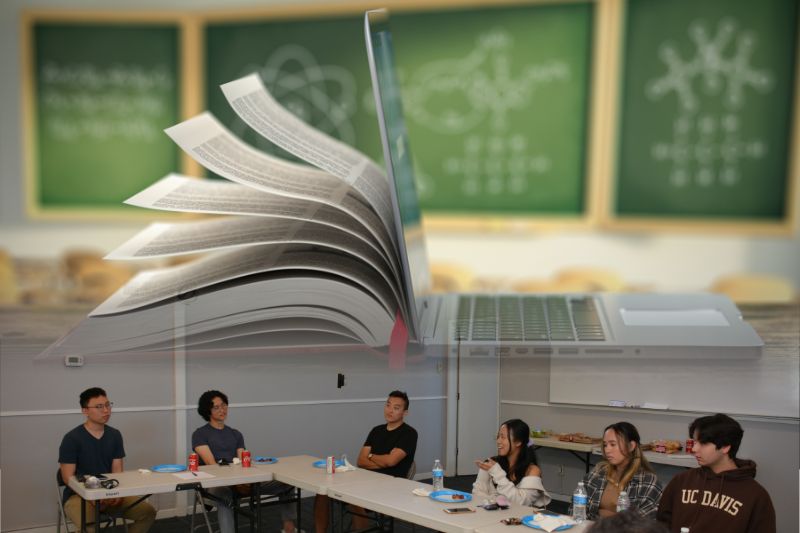Empathy and Accessibility – The Future of Learning
Students engage in the “Future of Learning” Forum hosted by beAuthentic team in Mountain View, CA.
A paradigm shift in learning – the traditional setup of a professor reading off their lecture and blindly assigning work feels outdated. We are at an inflection point in education highlighted by a forum hosted by the beAuthentic team. Starring college students residing in the Bay Area, the group focuses their conversation on their current experience and future expectations for higher education.
2020 has been a redefining year for many – record IPOs, increased productivity, and increased awareness for mental health and self-love, especially in students.
As a result, people are leaving their jobs to pursue better and more fulfilling lives. Companies, educational institutions, and organizations have focused their efforts on mental health resources. And we see mental health at the forefront of social media – think Instagram and TikTok.
In a “Future of Learning” forum, college students openly discuss their personal experiences while attending college, expectations for the upcoming years in college, and key takeaways from the overall college experience – in-person and online. The forum was hosted by beAuthentic CEO, Damon Moon, who also happens to be a Lecturer at San Jose State University. The discussion was moderated by beAuthentic Summer Fellow, Hudson, currently attending Boston College.
![]() (L-r) Top: Hudson Park, Moderator, beAuthentic Summer Fellow, Boston College Student; Carlos Guzman, West Valley College Student; Aron Ma, UC Santa Barbara Student. Bottom: Damon Moon, beAuthentic CEO, Lecturer at San Jose State University; Rose and Julleah, De Anza College students
(L-r) Top: Hudson Park, Moderator, beAuthentic Summer Fellow, Boston College Student; Carlos Guzman, West Valley College Student; Aron Ma, UC Santa Barbara Student. Bottom: Damon Moon, beAuthentic CEO, Lecturer at San Jose State University; Rose and Julleah, De Anza College students
The Present
Currently, the criterion for choosing a future career path and the respective education institution for that career path has become a multi-dimensional roadmap. Factors include financials, adaptability, environment, capability, and convenience.
How did you choose your current college?
Students in the forum were asked how they chose their current college. One approach was to try their luck in getting into their top choices and choosing the most prestigious option. Another deciding factor was the level of content, based on environment and weather. Others chose to go to community college to discover their career path while being able to save on the expense. It seems that most students took a holistic approach based on their current requirements – degree, career path, atmosphere, and cost.
Given the chance, students would choose to go to a more prestigious university if money wasn’t an issue. Students did point out that going there may not be the right decision because of the environment and potential stress.
How did you choose your courses?
All the students chose courses that they believed would be relevant to their day-to-day living and fulfill their passion. They also looked for courses that were more engaging and easier to follow than content-heavy courses. With the advent of social media and online resources, students get a lot of information helping build their schedule.
What was your online experience like?
Most students, being in their first or second year, were comfortable with the online learning experience even with a few issues along the way.
Asynchronous worked better for students as it was more convenient and flexible. The setup allowed students to learn and access resources at their own pace, however, asynchronous classes would exacerbate procrastination and assignments would be left for the absolute last minute.
Relationships were built using platforms like Discord and Zoom breakout rooms. Most students were able to also meet in person, safely. However, many felt that the emotional connection behind a screen or on a wall of text isn’t as legitimate as it would be in person.
Professors’ and students’ willingness to harness technology was a limitation in the quality of education. Some professors couldn’t grasp the workings of Zoom and the accessibility of the professor was lower. Communication barriers also came into play due to bad connections or professors being burdened by more queries than they could handle.
The Future
People learn differently. Whether it is visual, auditory, through lectures, or memorization, everyone has a different way of learning a concept.
My first college professor followed the principle of “facilitating learning.” The idea was focused on creating a welcoming and warm environment that would help make learning fun and interactive. That was the growing sentiment within the group of students. Students would like to see more empathy and would prefer spending some of class time building relationships over learning all the material.
This could be made possible if professors can make themselves more flexible and accessible. For example, I had a few professors who would use platforms like Slack or Discord to create an instant messaging channel. Other professors would share their mobile numbers or direct email for easier contact. Students would prefer professors who are open to questions and can answer questions quickly. Professors would also resort to creating office hours and separate appointments if any assistance was needed.
Students don’t want professors reiterating what is on the slide. Regurgitation of the course material doesn’t facilitate effective learning. Many students prefer a more applicative and interactive learning experience. Whether it is the use of digital whiteboards, collaboration between different groups and the professor, or a simple poll, students would love to learn the material if they aren’t sitting idle reading slides and being hammered by auditory information.
It is safe to say that the top three priorities for an educator going forward would be flexibility, accessibility, and interaction as students’ willingness to learn in a class will revolve around that criterion.


